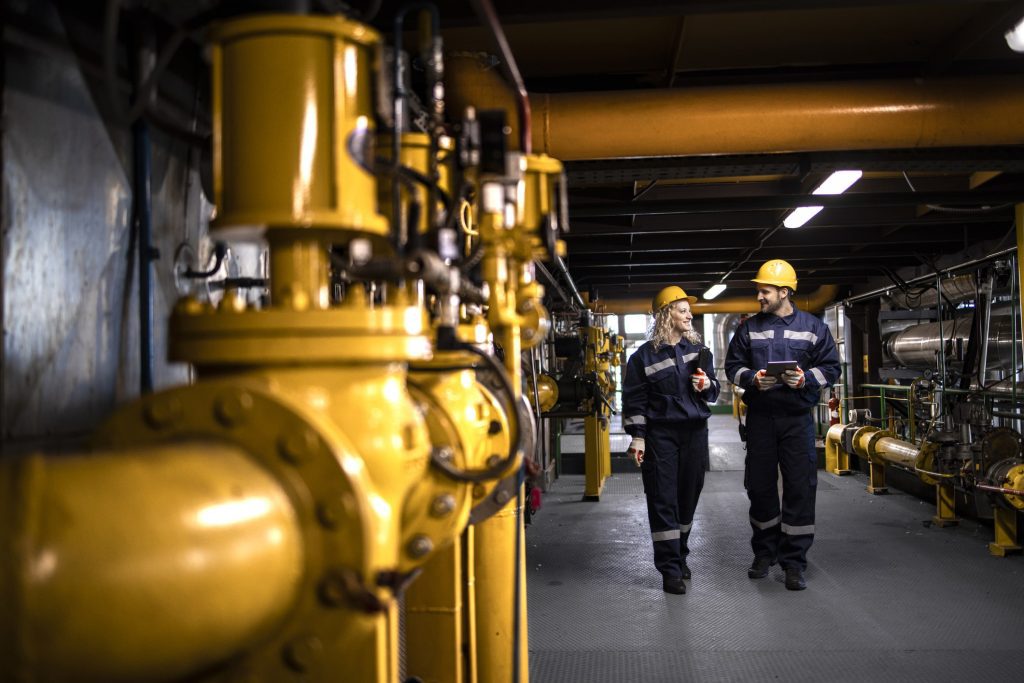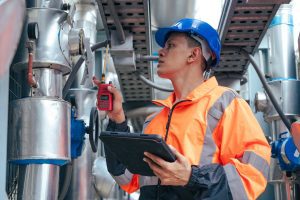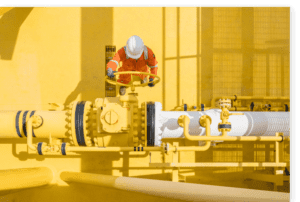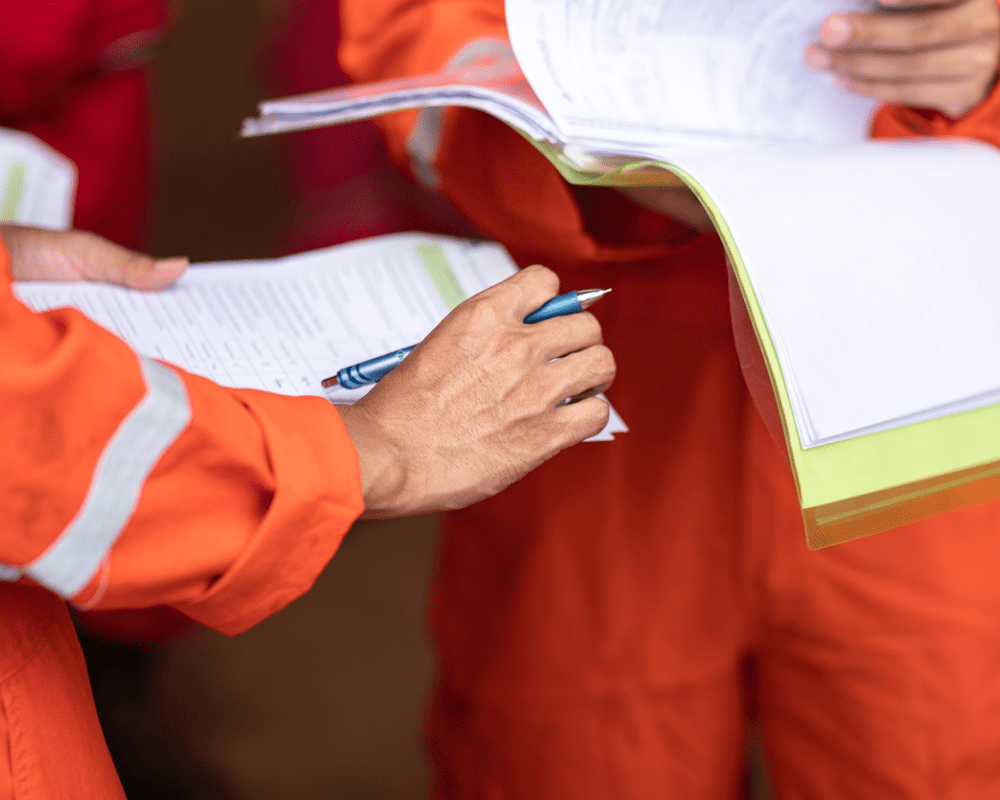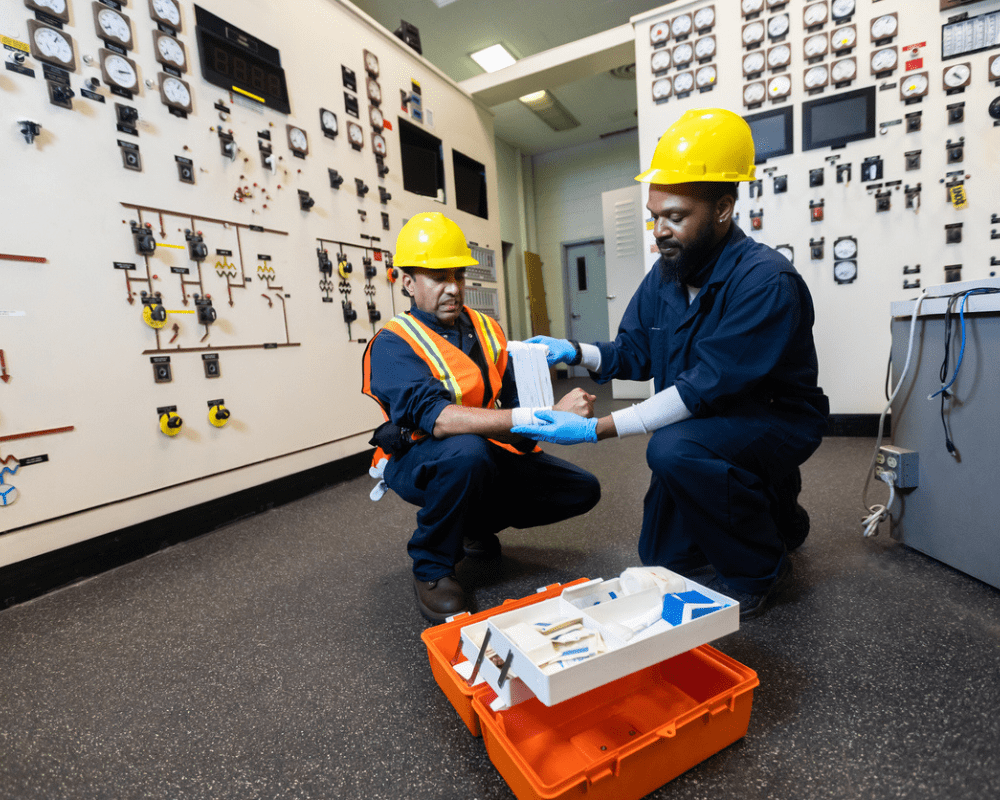At Jason Rowley Ltd, we speak to a lot of people working in the utilities industry who are either starting out, switching roles, or simply trying to stay on top of their certifications.
One of the most common questions we get is, “Do I actually need a SHEA Gas Passport?” It’s a fair question, and if you’re working in or around the gas network, the short answer is very likely yes.
But we know it’s not always that simple, so we’ve put together this guide to explain the SHEA Gas Passport, who needs it, and why it’s such an important part of working safely and legally in the utilities sector.
What Is The SHEA Gas Passport?
The SHEA Gas Passport is a recognised card that shows you’ve completed safety, health and environmental awareness training specific to working with gas.
SHEA stands for Safety, Health and Environmental Awareness, and the Gas Passport is one part of a wider scheme tailored to different utility sectors. It’s approved by the Energy & Utility Skills Register (EUSR), and it’s widely accepted across the UK as a standard requirement for gas-related site access.
In practical terms, it’s what gets you through the gate at many sites. It’s also a CSCS partner card, which means it meets the safety standards required for construction and utilities environments.
Who Needs It In Utilities?
If your work involves stepping onto operational gas sites, whether you’re laying pipes, managing infrastructure, carrying out maintenance, or even just supervising teams, you’ll need a SHEA Gas Passport.
It doesn’t matter if you’re employed directly by a gas company, working as a subcontractor, or just visiting the site to carry out related work. This passport is a way of proving you understand how to operate safely in that environment.
It’s not a technical qualification, but it shows you’ve been trained in the essential behaviours and knowledge needed to avoid risks and comply with industry expectations.
Without it, many sites simply won’t let you through the door.
Why It Matters For Site Access And Compliance
Having a SHEA Gas Passport isn’t just about ticking a box; it’s about making sure everyone on site is working from the same safety framework. In environments where pressurised systems, excavation, and confined spaces are common, one person’s lack of awareness can put the whole team at risk.
The card gives employers and site managers peace of mind that you’ve completed a recognised training programme and understand the key safety, health, and environmental responsibilities associated with working with gas.
Because it’s aligned with CSCS, it also streamlines access to sites without needing a second card, which saves time and hassle.
From a compliance point of view, it supports legal duties around the duty of care and risk management.
What the Passport Covers
The training behind the SHEA Gas Passport is split into nine modules. Six of those are core units covering general safety, health, and environmental awareness, which apply to all utility sectors.
They include topics like risk assessment, legal responsibilities, emergency procedures, occupational health, and the impact of human behaviour on safety. Then there are three modules specific to the gas industry.
These cover topics such as working around pressure systems, understanding premises-related risks, and maintaining hygiene and safety in gas-related environments.
Each module ends with a short multiple-choice assessment to check your understanding, but it’s all delivered in a straightforward, common-sense way.
How Long It’s Valid and When to Renew
Once you’ve completed the training and passed all the assessments, you’ll be issued with your SHEA Gas Passport. It’s valid for five years, and during that time, you can use it as proof of your awareness training wherever it’s required.
As the expiry date approaches, you’ll need to complete a refresher to keep your registration up to date. There are options for that, too. You can do a full-day session again if you prefer a full recap, or you might be eligible for a half-day renewal session if your card is still valid.
The important thing is not to let it lapse because without it, you could be unable to access sites or carry out your usual duties.
Common Misconceptions
One thing we hear from time to time is people assuming that the SHEA Gas Passport proves you’re fully qualified in gas engineering or installation. It’s important to understand that this isn’t a technical certificate. It doesn’t replace qualifications like ACS or NVQs.
Instead, it’s all about awareness, making sure that no matter what your technical role is, you understand how to work safely, protect the environment, and follow proper procedures on site.
Another common misconception is that you need both a CSCS card and a SHEA Gas Passport. In fact, because the SHEA card is recognised by CSCS, it’s accepted in place of it on many sites.
So in many cases, the SHEA card will be the only one you need.
How to Get Registered
The process of getting your SHEA Gas Passport is pretty straightforward. You sign up for a training session, which can be done in a classroom, live online with an instructor, or even through some e-learning formats, depending on your needs.
During the course, you’ll go through all nine modules and take the short assessments at the end of each one. Once you’ve passed, you’ll be registered with EUSR and your card will be issued.
These days, you’ll usually receive a virtual card on your phone pretty quickly, and the physical card will follow in the post shortly after.
It’s a smooth, efficient process designed to prepare you for site access as soon as possible.
The Professional Value of Holding One
Beyond just getting you on site, the SHEA Gas Passport adds a layer of professionalism to your CV. It shows that you’re proactive about safety and committed to meeting industry standards.
For employers and clients, it’s a signal that you take your responsibilities seriously, and that’s never a bad thing. If you’re new to the sector, it can also help you stand out when applying for jobs or contracts.
And if you’re already well established, it’s a way to stay current and keep your qualifications in line with evolving safety expectations.
Is The Shea Gas Passport Right For You? Speak To Jason Rowley Today
So, do you need a SHEA Gas Passport? If you’re working in or around the gas network, chances are the answer is yes. It’s the industry standard for proving your safety, health and environmental awareness, and it’s recognised by employers and regulators across the UK.
At Jason Rowley Ltd, we’ve helped hundreds of professionals get their SHEA cards quickly and confidently, and we’re always happy to answer questions if you’re not sure whether it applies to your role.
Whether you’re just getting started in utilities or you’re looking to renew your card, the SHEA Gas Passport is a valuable tool for keeping yourself and others safe on site, and we’re here to help you every step of the way.

